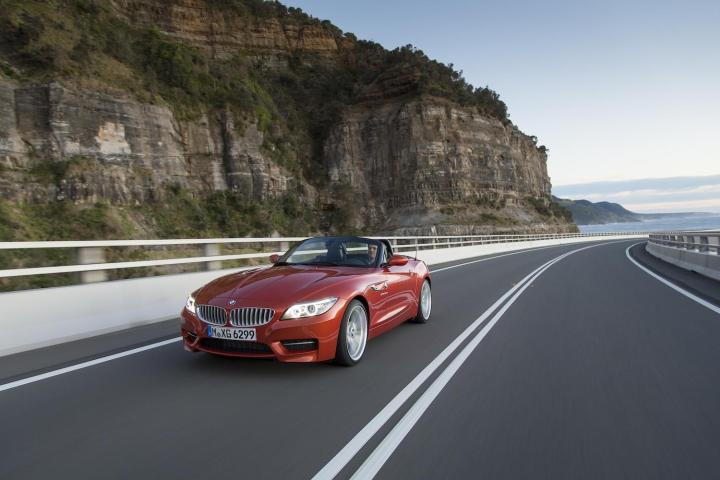
The axis powers of WWII are back at it: BMW and Toyota are full steam ahead on their joint sports car project.
We’ve been reporting for months now that BMW and Toyota have been (sort of) secretly working on a new sports car platform. Now we’ve learned that not the project is not only being briskly bundled forward, it’s also causing much grief for the Germans.
Why are such disparate automakers tied in such a tango? It all goes back to a 2011 deal where the two brands agreed to develop lithium-ion batteries together. At that time, Toyota was using nickel-metal hydride batteries for its hybrids and BMW, well, wasn’t.
After that co-venture sailed forward smoothly, the two thought they’d give it another go and reinvigorate their own respective sports car offerings. As it stands, BMW Z4 sales have decelerated while the 6 Series is derided for being far too hulking and soft to be a true sports car. Although Toyota is doing quite well with its GT86 (Scion FR-S here in the States), it isn’t opposed to having another rear-drive roadster on its roster.
Why don’t the two just do their own thing? BMW gets access to Toyota’s fuel cell technology. And Toyota gets to use BMW four-cylinder diesels for its European offerings.
We had reported that the car might be based upon the platform of the Subaru-designed FR-S. While we’ve not heard much more of that, we presume it likely. According to Car Online, both brands want a rear-drive sports car with a front-mounted engine with plenty of carbon fiber composites. Whether or not the cars will feature hybrid powertrains has yet to be decided. It is a place where the axis automakers excel, however. Think Prii and BMW i8, for example.
Tensions are running a bit high in Bavaria, apparently. BMW brass isn’t keen on seeing Toyota’s in its parking lot and fears the deal will turn off Bimmer diehards. While some BMW dorks might be alienated a bit, the brilliance of the platform will likely win over most naysayers – and plenty of new buyers.
And when might we know more of the project? Both Toyota and BMW leadership want the project outlined and detailed by the end of 2013. So, delightfully, we won’t have to wait much longer.
Editors' Recommendations
- BMW shipping cars without advertised Apple and Google features
- 2022 Toyota GR 86 first drive: Old-school thrills meet modern tech
- The best sports cars
- BMW’s technology flagship is an electric SUV with concept car-like styling
- The best used cars under $10,000


